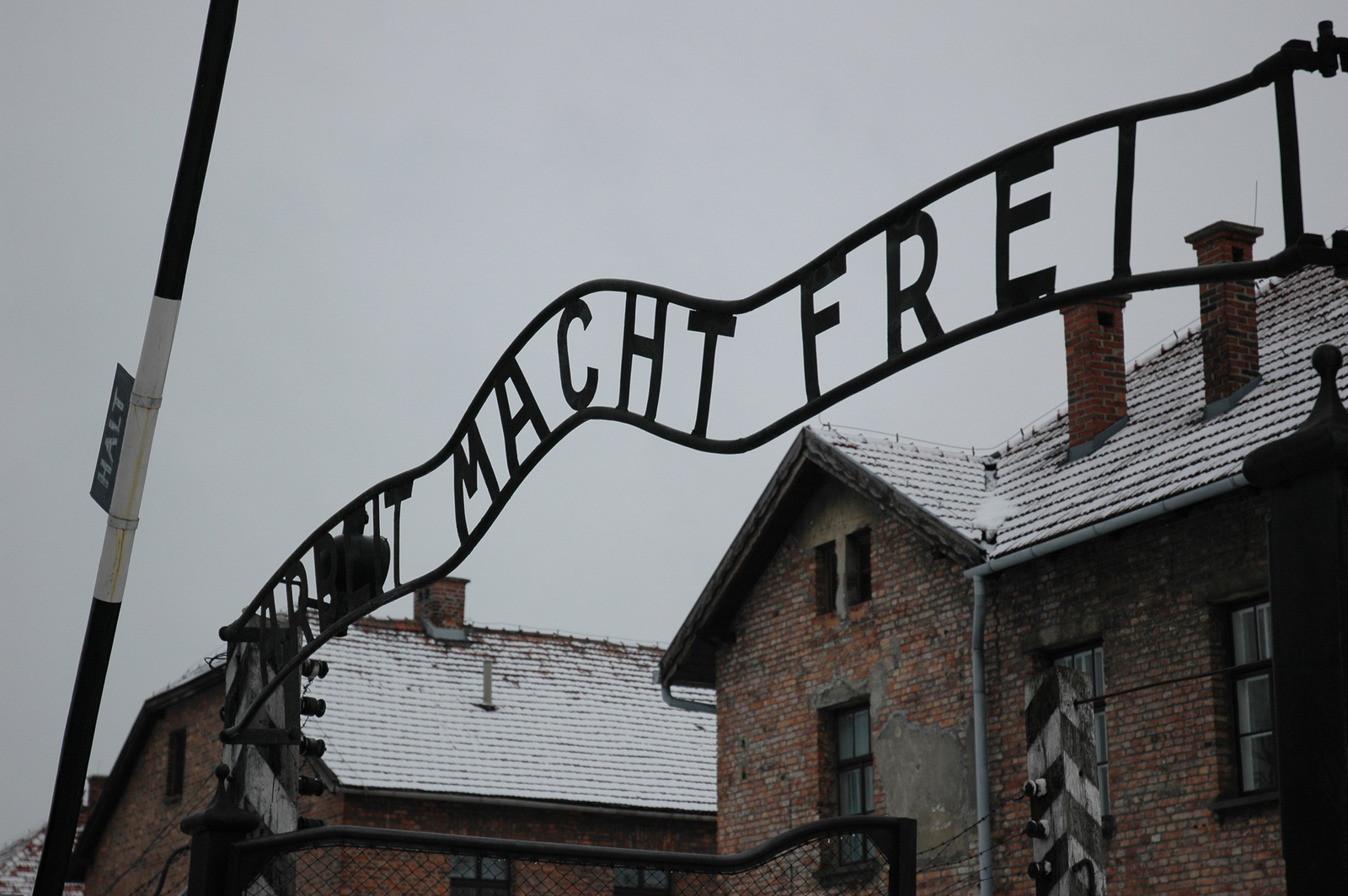JANUARY 27, 2020 – Seventy-five years ago today, Soviet troops liberated the concentration camps of Auschwitz-Birkenau near the Polish town of Oświęcim (“Auschwitz” in German), just west of Kraków. It is estimated that of the 1.3 million people who were sent to those camps, about 1.1 million died—shot, gassed, worked to death, starved to death, or killed by disease. Today the site serves as a reminder of humanity’s inhumanity.
Above the entrance to the main camp is a wrought iron arch to which the words, Arbeit Mach Frei—“Work Makes Free”—are affixed. That phrase and the string quartet that was forced to play Haydn and Beethoven as each trainload of prisoners arrived were despicable ploys by the German overseers to calm fear-stricken arrivals.
I’ve been to Auschwitz twice—once in 1981 while traveling extensively alone throughout Poland and again in 1985 with my wife and her parents during a weeklong sojourn in parts of the country. Simply put, while experiencing a place like Auschwitz, you feel the jackboot of history pressing relentlessly on your heart, mind, and soul. When you emerge, a flood of tears drowns your emotions. For some while afterward, you struggle with the fundamental question, “How did this happen?”
When our kids were in high school, they had the benefit of hearing a Survivor talk to their classes. By all accounts, it was a sobering hour. But soon everyone returned to the demands and distractions of the day—math class, then English, with hallway banter in between; after-school sports, dinner, homework. Memory of the Survivor’s talk faded as the school year advanced.
I praised the school for its effort, but I wondered then and wonder now—in what context do most people remember the Holocaust? Very little, I’m afraid. I remember asking our kids, “What did you learn about what led to the Holocaust?” They’d learned something, but the centerpiece of the learning experience was about the end game, the Nazis’ “Final Solution.”
Many films have been made about World War II, the Holocaust, and the concentration camps—the most monumental movie being Schindler’s List, which everyone should watch at least once. But how many films depict the run-up to the Holocaust—the rise of Nazism in the 1930s; Hitler’s “kampf” before that, and most critical, the political tactics that he deployed to take advantage of Germany’s domestic strife? If there’s any point to remembering the Holocaust, any purpose in passing under the sign, Arbeit Mach Frei, and seeing the memorial to humanity’s inhumanity, we must endeavor to understand the circumstances that lead to such horror.
History doesn’t repeat itself, but it dances to repetitive themes. On the occasion of this 75th anniversary of the end of liberation of Auschwitz-Birkenau, we must dedicate ourselves to the hard work of understanding the forces that led civilization to such barbarity. In that work is the chance to be free of another dance with the devil.
(Remember to subscribe to this blog and receive notifications of new posts by email.)
© 2020 by Eric Nilsson
